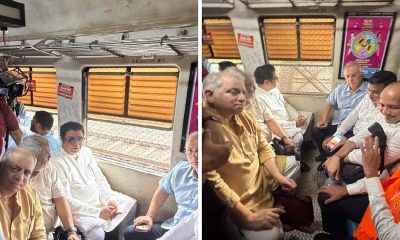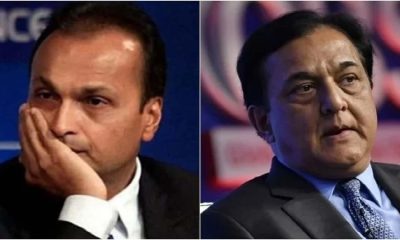International News
2022 was ‘a defining moment’ for Turkish diplomacy
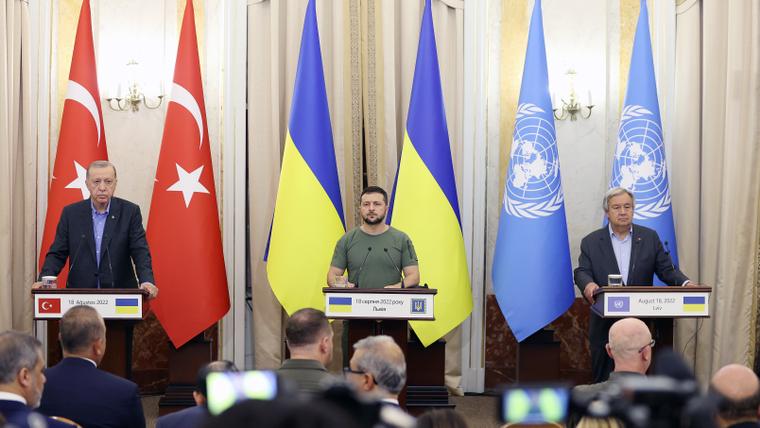
Türkiye has been a top mediating force between Ukraine and Russia, while developing different reconciliation paths with countries from Israel to Egypt.
2022 will be remembered as the year when Russia attacked Ukraine, starting a difficult war with no end in sight and escalating tensions between the West and Moscow.
The year has also seen some crucial peace initiatives emanating from Türkiye, a NATO member, which has a working relationship with Russia on different conflicts like Syria, aiming to find a common ground between Kiev and Moscow.
Turkish peace efforts were fruitful with some significant results, like the landmark grain deal and exchange of prisoners of war between Russia and Ukraine. Ankara has also launched other crucial peace initiatives normalising its ties with Israel and Egypt, two important Middle Eastern states, with which its relations had deteriorated in the 2010s.
Gregory Simons, an associate professor at the Institute for Russian and Eurasian Studies at Uppsala University, believes 2022 was “a defining moment” for Türkiye, which “managed to negotiate achievements that no other country can.”
According to Simons, “the example of Ukraine as a geopolitical shatter belt between US and Russia has seen Türkiye take a role as an honest broker in the conflict,” which reaffirmed the country’s wisdom in establishing and developing an independent balancing and mediating role in the current era of risk and uncertainty.
Unlike many other Western states, Ankara’s hard work and persistence along political and economic tracks yielded progress like the grain shipment agreement “in a highly divisive and emotionally driven geo-economic and geopolitical conflict,” showcasing Ankara’s growing position as a subject and not an object of events, Simons tells TRT World.
In 2022, Türkiye emerged as “the world’s most important peace actor that left its mark on the year,” says Mesut Hakki Casin, a professor of international law at Yeditepe University, referring to Turkish efforts to address the Ukraine conflict.
“While Turkey successfully demonstrated its neutrality policy in the Ukraine war, just as it did in the Second World War, it played the role of mediator in the conflict as stipulated in the 33th article of the UN,” Casin tells TRT World. During WWII, Ankara stayed neutral between Nazi Germany-led Axis countries and the Allied forces, avoiding any casualties.
Ukraine policy:
Despite much pressure from the US and Europe, Türkiye has refused to be part of Western sanctions on Russia, believing that talking with Moscow is better than isolating it. But at the same time, Türkiye has urged Russia to withdraw from all occupied Ukrainian territories, fiercely defending Kiev’s territorial integrity.
The Ukraine war has shown that “Türkiye in the 21st century pursues a fundamentally different foreign and security path than that played during the Cold War,” says Simons. In this path, Ankara acts as a bridge between the Western-centric and non-Western-centric worlds, he says.
Unlike the past, when Ankara followed a passive foreign policy, under President Recep Tayyip Erdogan Türkiye has demonstrated the country’s political and military potential in the international arena from Ukraine to Central Asia.
“Turkish President Recep Tayyip Erdogan is the only leader capable of talking with both Vladimir Putin and Volodymyr Zelenskyy, working to develop a rapprochement between the two sides,” says Casin.
Beyond Turkish mediation efforts, Ankara has also taken a crucial step to close its straits to both Russian and NATO warships in alignment with the Montreux Convention, which regulates the status of Turkish channels. “With this crucial measure, Türkiye has prevented the spread of the Ukraine war to other areas particularly in the Black Sea,” says Casin.
This measure also crucially led to setting demarcations in the conflict between Russia and the West, limiting tensions between the two sides, according to the Turkish professor.
Yasar Sari, an expert at Haydar Aliyev Eurasian Research Center of Ibn Haldun University, also believes that Türkiye’s diplomatic efforts “have kept the Ukraine conflict limited,” preventing the war from turning into a regional conflict.
Besides the Ukraine conflict, Türkiye has displayed its mediation skills in another difficult conflict between Armenia and Azerbaijan on the Karabakh dispute, urging both Erivan and Baku to find common ground to address their differences.
In October, Erdogan played a critical role to realise an icebreaker peace talks between Azerbaijani and Armenian leaders in Prague on the sidelines of an EU meeting.
Middle East normalisations:
During 2022, Türkiye also worked hard to de-escalate tensions across the Middle East, reestablishing its ties with Egypt and Israel and strengthening its connections with Saudi Arabia and the UAE.
Since a 2010 Israeli raid on Mavi Marmara, a Turkish aid ship travelling toward Gaza, which had long faced blockade by Tel Aviv, Turkish-Israeli ties experienced a deteriorating trend. In 2013, Turkish-Egyptian diplomatic ties were cut off after a coup led by general-turned-President Abdul Fattah al Sisi overthrew the country’s first democratically-elected government.
“Turkiye’s diplomatic initiatives have been very successful in opening a new page with all of the regional powers in the region. This is part of a broader trend in the region of trying to maintain diplomatic channels open among the major players,” says Gallia Lindenstrauss, a senior research fellow at the Institute for National Security Studies (INSS), an Israeli think-tank.
“The normalisation process with Israel has been noteworthy for the fact that contrary to the 2016 normalisation effort, this time around there were many more high-level visits, indicating that there is a more solid ground for the current normalisation,” Lindenstrauss tells TRT World.
In March, Israeli President Isaac Herzog met with Erdogan in a groundbreaking visit to Türkiye. In September, another high-level meeting between Israeli Prime Minister Yair Lapid and Erdogan was held at the sidelines of the UN General Assembly. Erdogan also indicated that he wanted to visit Israel after the November elections.
This high-level meeting approach to solidify ties between Türkiye and other states has also been obvious in Ankara’s normalisation process with Egypt. Last month, Erdogan met Sisi in Qatar saying that “there should be no resentment in politics,” referring to past tensions between the two states following the Arab Spring rebellions.
It’s an approach that could go further in the turbulent Middle East. “In the next period, just as it (Türkiye) has entered a (normalisation) path with Egypt, it can also enter another (normalisation) path with Syria,” the Turkish president said. Ankara-Damascus ties have been cut off in the wake of the Syrian civil war, seeing millions of refugees flowing to Türkiye.
During 2022, Erdogan also met UAE leader Sheikh Mohammed bin Zayed Al Nahyan in Abu Dhabi and Mohammed Bin Salman in Ankara, showing his commitment to strengthening formerly strained ties with the two Gulf countries.
According to Lindenstrauss, Ankara’s normalisation with Israel indicates the depths of ongoing Turkish diplomatic efforts in the Middle East.
Crime
D-Syndicate looking to expand narco trade into Southern and Northeastern routes, warn Intelligence agencies

New Delhi, Oct 30: In recent months, the Narcotics Control Bureau (NCB) has been cracking down heavily on the Dawood Ibrahim-linked drug network in India.
The arrests of Danish Chikna and Mohammed Salim Sheikh have dealt major blows to the Dawood network, and this has prompted the syndicate to look for newer avenues.
As Intelligence agencies continue to focus heavily on the networks in Maharashtra and neighbouring states, the D-Syndicate is looking to expand its networks in the northeastern and southern states of India.
Action would be taken similarly in these parts of the country. However, it is necessary to bust the networks in states such as Maharashtra and Gujarat, which have been the traditional playground of the syndicate for a long.
While Dawood Ibrahim has diversified his business in various parts of the country, the command centre remains in Maharashtra.
The people working for the network in this sector control the businesses across the country, and hence, breaking their backs first is important. This would eventually lead to the weakening of the networks in other parts of the country.
Operations in the northeastern and southern states are currently overseen by Haji Salim, an ISI stooge and a member of the Dawood network.
Salim has been playing a big part in the D-Syndicate after Dawood’s right-hand man, Chhota Shakeel, has gone mysteriously quiet.
With Dawood’s brother Anees Ibrahim put in charge of the International wing, which does business mostly in African nations, the onus of the Indian markets has largely fallen upon Salim.
According to Intelligence agencies, the ISI and syndicate have now instructed Salim to focus entirely on the southern and northeastern sector as they feel that there is a major potential.
The syndicate sees potential in the northeast owing to the existing routes from Myanmar. With Bangladesh opening up completely to the ISI, the syndicate sees further potential in this sector.
In the South, the syndicate’s network exists. However, this network has largely focused on smuggling drugs out of the country. The narcotics would first be smuggled into the southern states, especially Kerala and Tamil Nadu, and later, to the international markets such as Thailand through the Sri Lanka route.
An Intelligence Bureau official says that the syndicate is also looking to bring in more drugs through Sri Lanka before distributing it in the Indian market.
While the international market is huge for the syndicate, it is not ready to let go of India, as demand is huge.
The syndicate not just wants to cover its losses in Maharashtra, but also the ones it is incurring in Punjab.
Several attempts to bring in drugs through the Punjab route using both couriers and drones are failing owing to heavy scrutiny and security. Hence, the Dawood network wants to take maximum advantage of the southern route so that it can smuggle drugs in huge quantities and then distribute them to the Indian market.
To bring in drugs from the international market, the syndicate would use the route from Sri Lanka. The network would look to smuggle the consignment into Tamil Nadu and Kerala before supplying it into the Indian market.
According to officials, the network feels that this would be an easier route, as most of the consignments in the Indian market will be transported via land route.
The scrutiny at the southern international borders is relatively less when compared to the borders along Punjab or Jammu and Kashmir. Further, using the land route to smuggle drugs into India would also attract less scrutiny, and the syndicate hopes there would be more hits than misses.
Another official also pointed out that the D-Syndicate is also tapping into the illegal immigrants who have settled in South India in huge numbers. They could be used as carriers to supply the drugs into the Indian markets, officials also warned.
Business
US lawmakers unite to defend bilateral ties with India through letters and resolutions
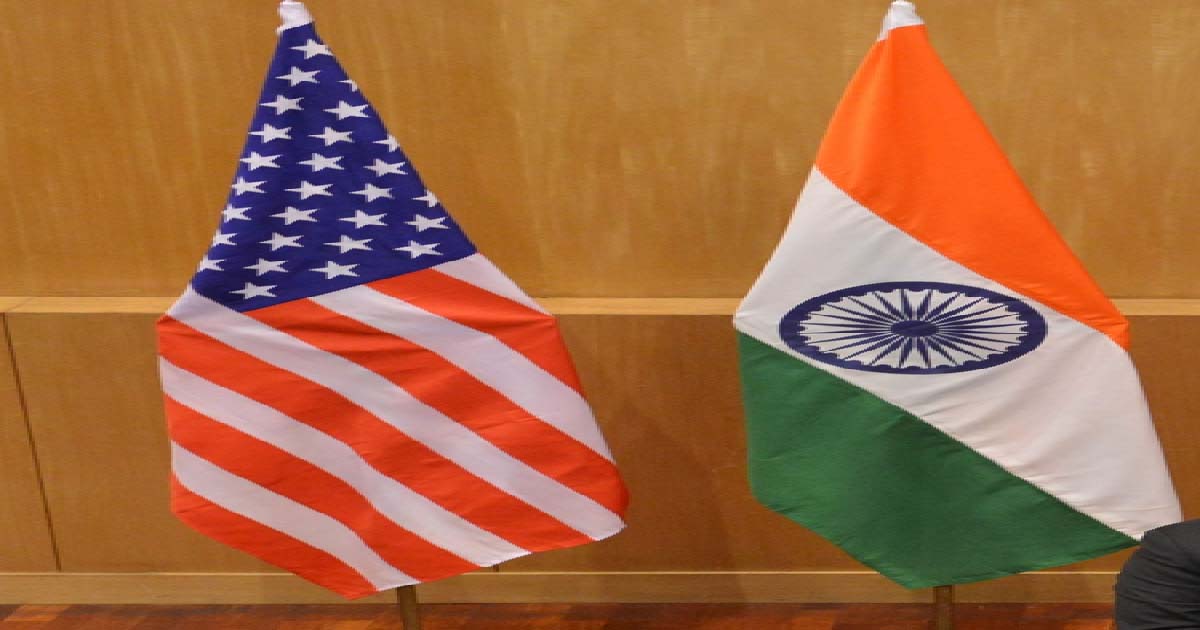
Washington, Oct 28: Both Republican and Democratic lawmakers have joined hands to support the India-US relationship, months after the Trump administration announced a series of policies targeting Indian interests.
At least six bipartisan letters and resolutions have been drafted over the past 10 days defending the interests of the Indian American community, reaffirming support for the India–US partnership, and pressing the administration for accountability over its recent actions targeting New Delhi.
Last week, a group of House members expressed concern that an event at Rutgers University on Monday could “fuel further prejudice” against Hindus at a time when Hindu temples have been targets of violence.
The co-signers of the letter were Democrats Sanford Bishop from Georgia, Shri Thanedar from Illinois, and Suhas Subramanyam from Virginia, and Republican Rich McCormick, also from Georgia.
Two days earlier, another bipartisan group of six House Representatives wrote to US President Donald Trump and Commerce Secretary Howard Lutnick, expressing concerns over the H-1B proclamation.
“We are concerned that the recent proclamation related to H-1B visa petitions will create significant challenges for US employers and overall weaken our competitiveness,” the letter stated.
The group again included Democrat Suhas Subramanyam along with Republican Congressmen Jay Obernolte and Don Bacon, among others.
On October 17, four US lawmakers wrote to President Donald Trump, urging him to attend the Quad Leaders’ Summit in India and other meetings in Asia.
The same day, a bipartisan resolution was introduced in the House of Representatives to recognise the “contributions made to the United States by the Indian American diaspora” and condemn recent acts of racism against Indian Americans.
The resolution also termed the India-US relationship as “one of the most important democratic partnerships in the world”.
It was a sharp departure from just days earlier, when 19 House members, all Democrats with no Republican support, wrote to President Donald Trump on October 8, urging him to “reset and repair” the India-US “critical partnership”.
Leaders from both Democratic and Republican parties have faced criticism for mostly remaining silent as senior officials of the Trump administration, like Trade Advisor Peter Navarro and Commerce Secretary Howard Lutnick, repeatedly targeted India over its purchase of Russian oil and trade imbalance.
In August, the Trump administration imposed 50 per cent tariffs on New Delhi, which included a 25 per cent levy for importing Russian oil.
Then, in September, President Donald Trump signed a proclamation on H-1B visas, imposing a $100,000 application fee to restrict the programme. Over 70 per cent of the approved H-1B applications in 2024 went to Indian nationals.
While a handful of Democrats opposed the administration’s stance publicly, Republican lawmakers, until recently, decided to keep quiet.
In early October, Democratic Representative Ami Bera, a leading advocate of the US-India relationship, told Media that some Republican lawmakers have remained silent out of fear of the president.
“I think they’re certainly afraid to take on President Trump directly,” he said.
In recent weeks, ties have stabilised, and negotiators have resumed talks to finalise the first phase of a trade agreement.
Last week, President Donald Trump held a special Diwali event at the White House where he termed Prime Minister Narendra Modi “a great person” and said he loves “the people of India.”
Bera added that more members should come out to support the relationship.
“Instead of making this about President Trump, let’s make it about the US-India relationship. Let’s make it about what we think as members of Congress – Democrats and Republicans. I don’t want the India-US relationship to be a Democratic thing or a Republican thing. It should be an American thing,” he told Media.
Business
US has reached a ‘substantial framework’ with China to avert tariffs: US Treasury Secretary Bessent
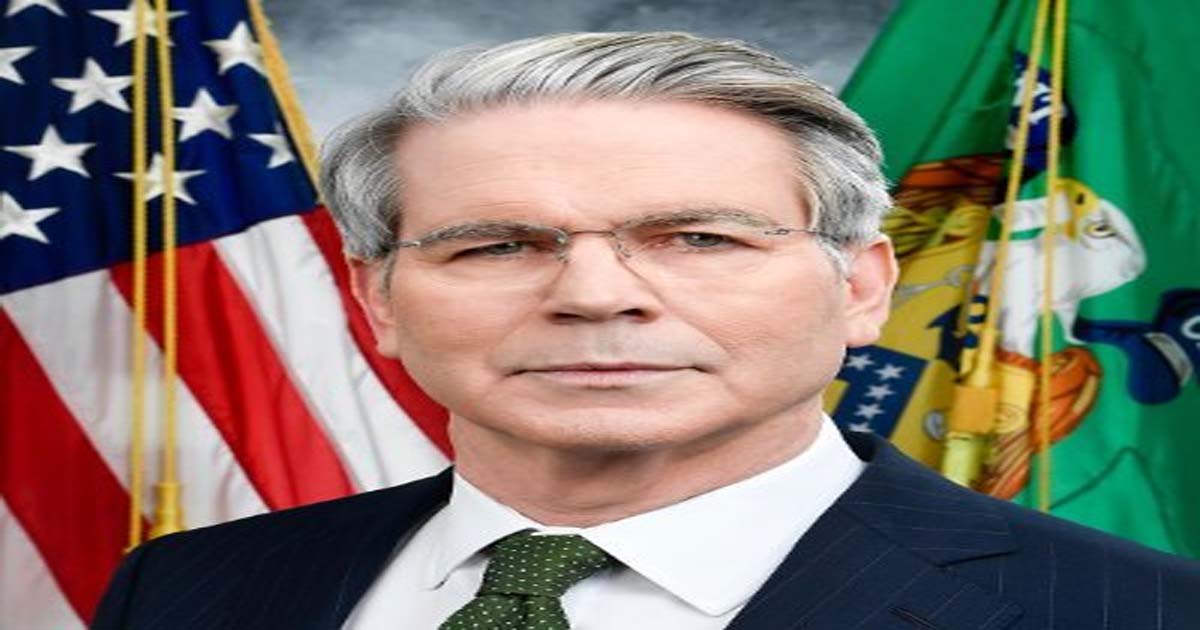
Washinton, Oct 27: US Treasury Secretary Scott Bessent has said that he believes the US has reached a framework agreement with China to avoid imposing an additional 100 per cent tariff on Chinese imports.
“I think we’ve reached a substantial framework for the two leaders who will meet next Thursday… that tariffs will be averted,” Bessent said on Sunday to media from Kuala Lumpur, Malaysia, where President Donald Trump arrived on Saturday for a weeklong Asia diplomacy tour.
Trump is expected to meet with Chinese leader Xi Jinping in South Korea later this week.
Earlier, Chinese International Trade Representative Li Chenggang said the US and China had reached “preliminary consensus” on trade issues during discussions in Malaysia, according to Chinese media.
Bessent did not provide details about the framework but said on media that he anticipates the US would get “some kind of deferral” on rare-earth export controls.
The minerals have been central to trade tensions between the top global economies.
Bessent said the framework sets up Trump and Xi “to have a very productive meeting,” adding, “I think it will be fantastic for US citizens, for US farmers, and for our country in general.”
Bessent indicated that an escalation in tariffs on China is “effectively off the table” following what he described as “very good” trade talks with his Chinese counterparts.
President Trump had threatened an additional 100 per cent tariff on China from November 1 over Beijing’s efforts to impose export controls on critical rare earths, ratcheting up tensions between the US and China.
Asked about the status of those tariffs, Bessent told media on Sunday that tariff threat has “gone away” after two days of talks in Malaysia.
“We had a very good two-day meeting. I would believe that the – so it would be an extra 100 per cent from where we are now, and I believe that that is effectively off the table.”
He added, “I would expect that the threat of the 100 per cent has gone away, as has the threat of the immediate imposition of the Chinese initiating a worldwide export control regime.”
US and Chinese trade negotiators reached a “basic consensus” on how to address their “respective concerns,” Chinese state media said on Sunday, following talks between the two sides over the weekend in Kuala Lumpur.
A delegation led by Chinese Vice Premier He Lifeng met with US officials including Treasury Secretary Scott Bessent and Trade Representative Jameson Greer for the talks, which come days ahead of a highly anticipated meeting between Chinese leader Xi Jinping and US President Donald Trump.
The two leaders are expected to meet on the sidelines of the APEC summit in South Korea, though Beijing, unlike Washington, has yet to confirm the meeting.
Earlier on Sunday, Bessent said the two sides had “set the stage for the leaders’ meeting” with a “very successful framework for the leaders to discuss”.
“The two sides engaged in candid, in-depth, and constructive exchanges and consultations on major economic and trade issues of mutual concern,” the Chinese state media readout said.
It listed out those issues as including US penalties on China’s maritime logistics and shipbuilding industry, reciprocal tariffs, fentanyl tariffs, agricultural trade, and export controls – a sweeping set of frictions that have set the world’s two largest economies at loggerheads.
“Two sides reached a basic consensus on arrangements to address each other’s concerns. Both sides agreed to further finalise the specific details and fulfil their respective domestic approval processes,” the readout said.
Trade and tech tensions between the world’s two biggest economies have heightened in recent weeks after the US expanded its export blacklist, hitting China’s access to American high-tech, while China ramped up its own export controls on rare earth minerals.
-

 Crime3 years ago
Crime3 years agoClass 10 student jumps to death in Jaipur
-

 Maharashtra1 year ago
Maharashtra1 year agoMumbai Local Train Update: Central Railway’s New Timetable Comes Into Effect; Check Full List Of Revised Timings & Stations
-

 Maharashtra1 year ago
Maharashtra1 year agoMumbai To Go Toll-Free Tonight! Maharashtra Govt Announces Complete Toll Waiver For Light Motor Vehicles At All 5 Entry Points Of City
-

 Maharashtra1 year ago
Maharashtra1 year agoFalse photo of Imtiaz Jaleel’s rally, exposing the fooling conspiracy
-

 National News1 year ago
National News1 year agoMinistry of Railways rolls out Special Drive 4.0 with focus on digitisation, cleanliness, inclusiveness and grievance redressal
-

 Maharashtra12 months ago
Maharashtra12 months agoMaharashtra Elections 2024: Mumbai Metro & BEST Services Extended Till Midnight On Voting Day
-

 National News1 year ago
National News1 year agoJ&K: 4 Jawans Killed, 28 Injured After Bus Carrying BSF Personnel For Poll Duty Falls Into Gorge In Budgam; Terrifying Visuals Surface
-

 Crime1 year ago
Crime1 year agoBaba Siddique Murder: Mumbai Police Unable To Get Lawrence Bishnoi Custody Due To Home Ministry Order, Says Report



